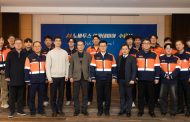At the 2025 Science Festival, a groundbreaking step in elderly care took center stage with the debut of ‘MOBILISE,’ a smart rehabilitation device tailored specifically for seniors. Created by Professor Sang Hoon Kang and his team in the Department of Mechanical Engineering at UNIST, this innovative system aims to empower older adults to regain and maintain their independence—potentially transforming community health practices and everyday life for the elderly.
During the event, held from April 16 to 20, over 1,000 visitors visited Professor Kang’s exhibition booth, with more than half experiencing the device firsthand. MOBILISE attracted significant attention as the world’s first personalized rehabilitation system specifically targeting sarcopenia and arthritis in the elderly.
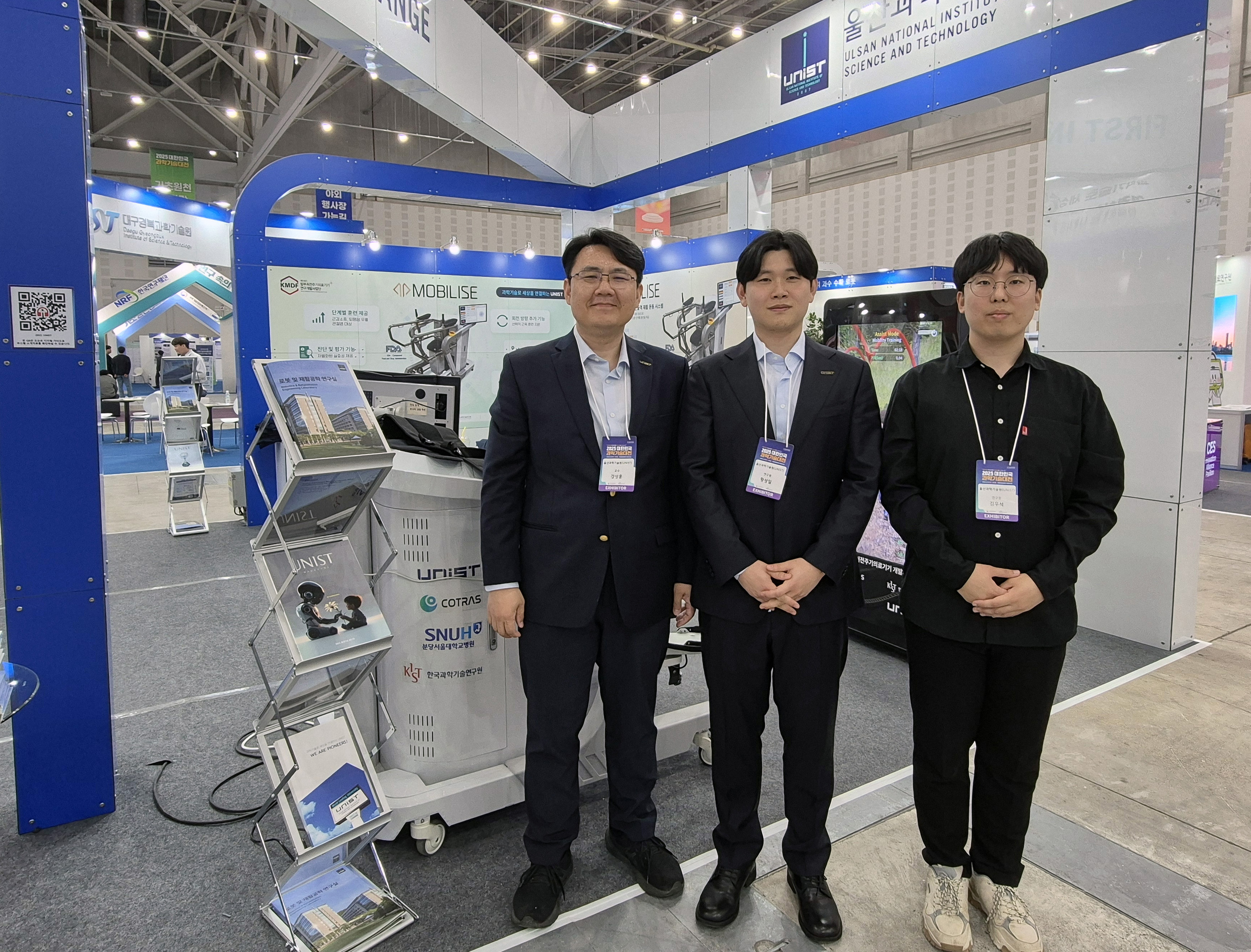
UNIST Robotics & Rehabilitation Engineering Lab: From left are Professor Sang Hoon Kang, Seongil Hwang, and Useok Kim from the Department of Mechanical Engineering, UNIST.
What sets MOBILISE apart is its ability to provide real-time biofeedback on lower limb muscle strength and knee internal moments. It employs eccentric muscle contraction—where muscles generate force while lengthening—a groundbreaking approach not previously seen in domestic or international rehabilitation technology.
The device combines posture correction, balance assessment, and virtual reality-based game training into an integrated platform. It automatically collects exercise data, allowing users and clinicians to accurately track progress by comparing pre- and post-training results. Beyond a simple assistive tool, MOBILISE embodies a data-driven approach to supporting elderly independence, designed for easy use at home or in community centers.
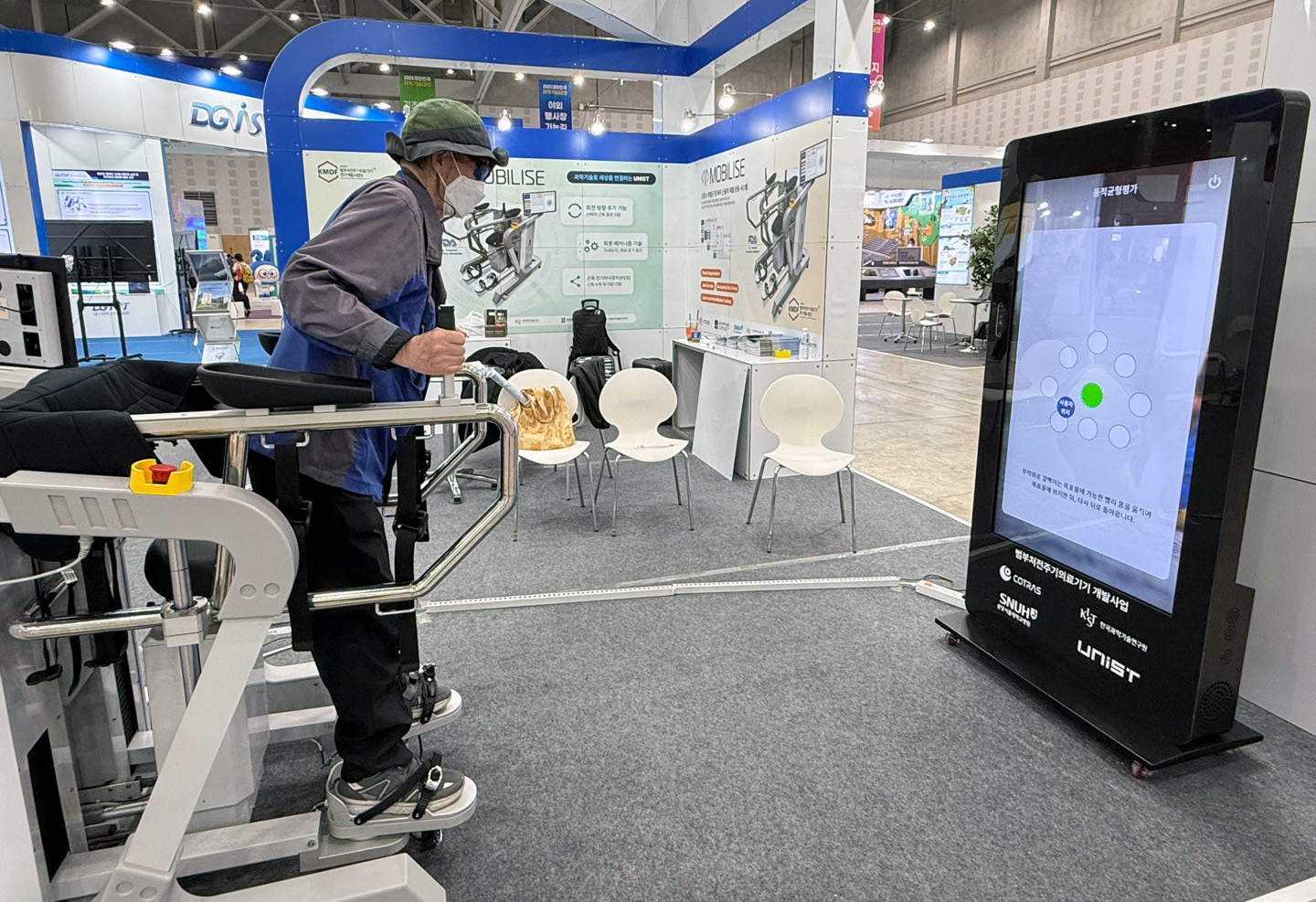
An elderly visitor measures balance ability while experiencing MOBILISE firsthand.
In South Korea, approximately 13.1% of seniors are affected by sarcopenia, and around 35% suffer from arthritis. These conditions contribute to social challenges such as falls, pain, and reduced mobility. MOBILISE‘s capability to facilitate repeated training outside hospital settings positions it as a promising public health technology to help seniors maintain their independence.
Professor Kang emphasized, “MOBILISE represents a new approach to elderly rehabilitation. Its ability to visualize and quantify progress can fill gaps in healthcare services and support aging with dignity and autonomy.”
Researcher Seongil Hwang (Combined Master’s and Ph.D. Program in the Department of Mechanical Engineering) shared, “Many visitors commented on how intuitive and responsive the device is. Its ease of use makes it suitable for community centers and care facilities, where it can have a real impact on daily life.”
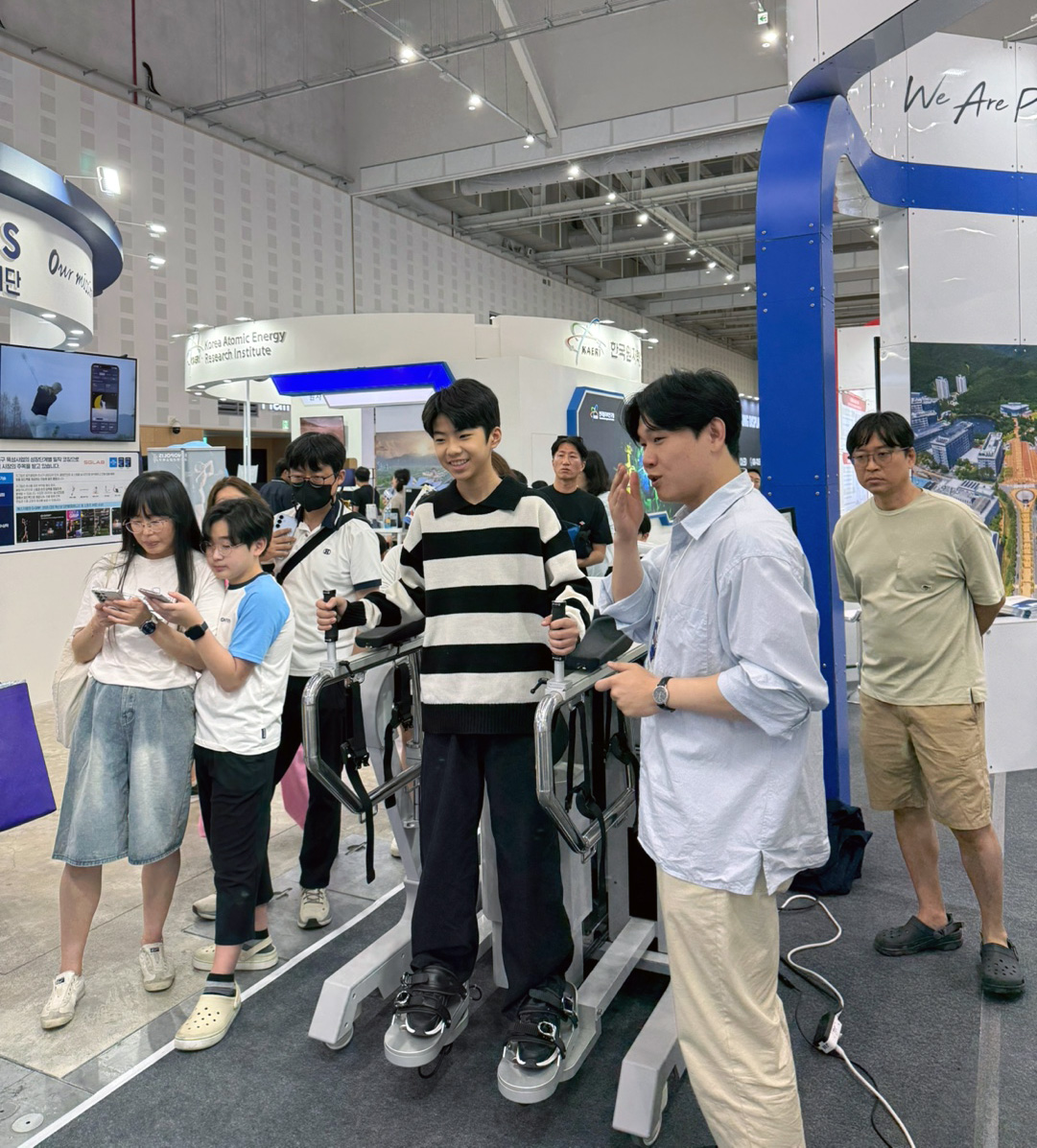
Seongil Hwang (Front left) from the Department of Mechanical Engineering conducts a hands-on demonstration of MOBILISE for visitors.
MOBILISE is the result of a collaborative effort among UNIST, Korea Institute of Science and Technology (KIST), Seoul National University Bundang Hospital (SNUH), and COTRAS Co., Ltd. Supported by the Ministry of Science and ICT (MSIT), the Ministry of Trade, Industry and Energy (MOTIE), the Ministry of Health and Welfare (MOHW), and the Ministry of Food and Drug Safety (MFDS), the device has received Class II medical device approval from both the U.S. Food and Drug Administration (FDA) and MFDS, affirming its safety and efficacy.
Looking ahead, the research team plans to expand clinical validation through partnerships with university hospitals and to develop pilot programs at local governments and long-term care AI diagnostic platforms. MOBILISE offers a viable solution for conditions like sarcopenia, which currently lack effective pharmacological treatments, representing a significant advancement in public health interventions.
The 2025 Science Festival also featured innovations from leading research institutions. KAIST showcased a wearable walking assist device, while GIST presented oral-type hearing aids and omnidirectional treadmills. DGIST displayed advanced multifunctional semiconductor devices. This year’s festival drew over 560,000 visitors. UNIST looks forward to sharing more of its innovative achievements with the public in future events.


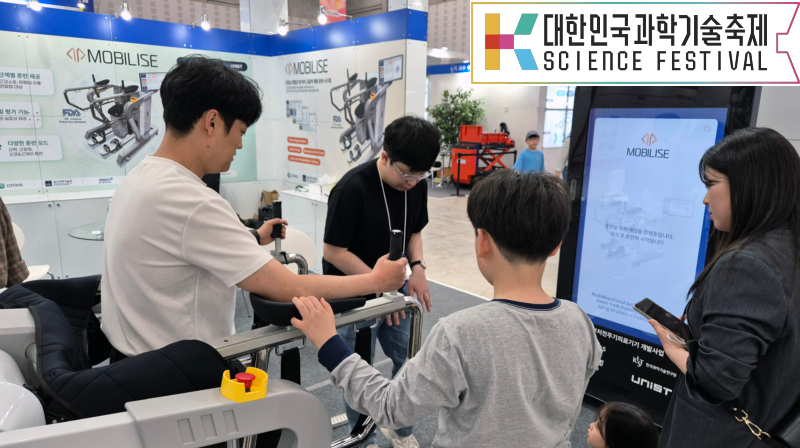








![[2026 Matriculation] UNIST Welcomes Class of 2030!](https://news.unist.ac.kr/wp-content/uploads/2026/02/사진-박종래-UNIST-총장이-2026년-입학식사를-전하고-있다-2-190x122.jpg)
![[2026 UNIST Commencement] UNIST Confers Degrees to 883 Graduates](https://news.unist.ac.kr/wp-content/uploads/2026/02/사진-2026학년도-UNIST-졸업생들이-학사모를-위로-던지며-졸업을-축하하고-있다-1-800x413-190x122.jpg)
